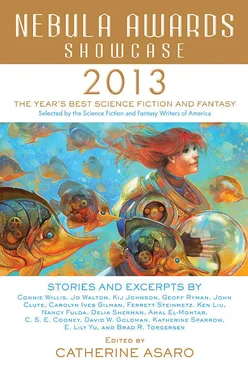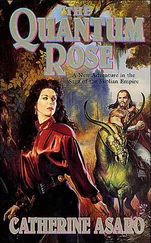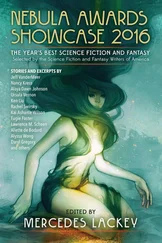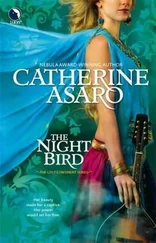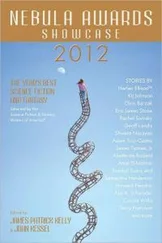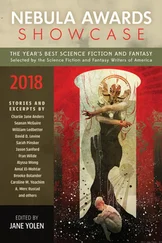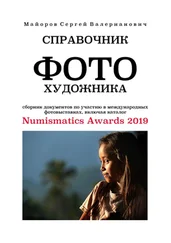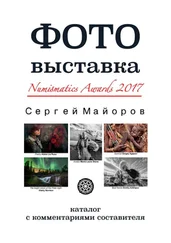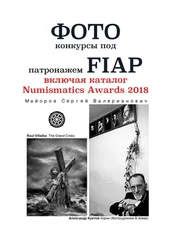Hector takes the lead and we ride slipstream on both sides of him on the two lane road. We look like a flock of geese flying in V formation. People say part of our augmentation is to copy the geese, but that’s crap. We ride like them for the same reason they do: it’s the best way to cut the wind. And with two thousand miles and twenty-two performances to hit in the next month, we’ll need it. No matter how slick our bikes are, when it comes down to it they are still one-hundred-percent powered by our legs and nothing else. So we’ll do anything we can to make it easier. We’re lazy like that.
The Going-to-the-Sun-Road is smooth and lined with trees turning pretty colors in front of deep blue mountains that look like the ocean in rock form.
Keith races ahead then slams on his regenerative brakes. He races forward again, brakes, then pops the hover gear and his bike floats up three inches off the ground for about five feet. Bless the mechanics who figured that one out twenty-one migrations ago. It makes our ride almost manageable through the lower states. We won’t need to hover in Montana where roads are still alright—cowboys will never give up the dream of driving, even if no one can afford the gas.
Scotty pops wheelies and bounces up and down on his bike. He’s got all kinds of boing-boing with twice the shocks and gearing of any of us. He carries the extra weight and drag of them. He likes the challenge.
I bike elbows to the grooves of my handlebars, laying my forearms against the warm metal. The curve of my back likes being here with my neck craned toward the horizon. My helmet feels like something I’ve been missing, a part of my head returned. It feels easy, like I could sit here all day and pedal, which is good, because that’s what I’ll be doing. I straighten up and warm my hands under my armpits, reminding myself of all the ways to ride, all the muscle sets I can use.
Something big skitters across the upper edge of my vision and I turn my head, excited. But it must have been a bug, because there’s nothing there. There aren’t many wild birds left, but sometimes, out in the middle of nowhere, a little miracle will fly through the sky. I like to imagine them living out here and surviving, despite everything.
We reach our first campsite—an old RV campground with a sign up to welcome us. Hector twists around to confer with me, then takes us another ten miles so we can stretch our legs a little bit more.
“Aren’t we supposed to stop there?” Theo asks.
I turn my head around and see he looks peeved.
None of the others answer him, so I say, “It’s good to not be predictable. You never know when the Sponsor might try to show up with his cameras and get into our business.”
“What do you have against him? That’s his right. It’s part of the contract,” Theo says. “And what’s our route? The Sponsor says we could add in a couple more dances if we rode faster.”
Theo can’t help talking stupid. He’s like a baby eagle who’s half pin feathers, half fluff. Even so, the other guys glare at him.
“Missoula to Stevensville, then Darby, then over to Wisdom,” I say. “As soon as you’ve ridden it once, it’ll imprint into you. Easy as riding a bike.”
“What happens if our bikes break and we’re not at the right spot?”
“Never happens.”
“Never?” he asks.
“All the components are internalized. The wheels are braided tungsten-rubber. The frames are torture tested carbon-fiber. We’ll break before these bikes do.”
That gives him a moment’s pause, then he asks, “You like being a migrator? You ever get tired of it and think of retiring?” There’s something sly and mean to his words.
I don’t answer him. There’s no way to express the combination of love, rage, fear, hate, joy, and sorrow I feel about migrating. Most humans never have to know about that feeling.
“Back when I started,” I say, and then grin at my grandpa words, “there used to be trackers on our bikes. They were real useful to our owner for planning our performances and getting the crowds ready. Except they always fell off or got broken somehow. That’s what happens when he tries to spy on our migration: things get broken.” I give him a knowing look.
He pauses for a moment, but then he starts in on me again. “He’s made you all rich. You talk like it wasn’t your choice, like he made you migrate.”
The young are always under the illusion that they are free. “He owns enough of us as is. Two migrations every year. When a bird migrates his flock follow the same route every year, but where they stop and rest—every year is a little different.”
“You study birds?” Theo asks.
“I’ve read some books, thought I should, since I am part bird.”
Theo nods his head. “What else do you know about them?”
“They’re quiet when they fly.”
The sun is a cold sliver on the horizon by the time we stop. We set up camp—five orange tents staked down in one corner of a fallow field. Scotty lets into the fledgling about uniforms.
“The more flow to our costumes the better, but you have to be careful about tripping. What do you think, Theo?”
The fledgling doesn’t know what to think, but Scotty doesn’t mind. All he needs is a sounding post. We all have our tricks for getting through the migration—Scotty’s is uniforms and gadgets. Hector’s is his tattoos, one for every migration. Maybe mine is thinking about birds. Theo stays up late talking with him, getting in a couple of ‘uh-huhs’ and ‘I guess sos’ in between Scotty’s monologue.
I zip into my tent and open up the sky window. It’s a big sky in Montana, everyone knows that, but the way it makes me feel lonely is all my own. I miss Marion and our two girls, all grown up now. In a day or so I won’t think much about them—everything will get focused down to the tunnel vision of migrating. I’m a man who lives dual lives with little overlap. But for the moment, I like to think about my family. I’d do just about anything for my wife and girls, like turn myself part way into a bird and migrate across the continent.
* * *
Three hundred and fifty miles later, give or take a dozen miles on my sore ass, we reach Yellowstone.
A huge banner stretches over the park’s north entrance reading, “See the Dance of the Sandhill Crane!” We sit back on our bikes as we coast into the park. Keith has been singing an old camp song to himself, over and over.
“I like bananas, coconuts, and grapes—that’s why they call me Tarzan of the apes! I like bananas…”
No one would blame me if I strangled him. Too bad I like Keith.
Theo is full of all kinds of talk again, playing the role of the good little stooge. He’s riding behind Hector, who treats him like a mosquito just out of slapping range.
“What can we do to make the dance more exciting and draw in more people? It’s great how the Sponsor is meeting us with more provisions, isn’t it? He really takes care of us.”
I bike steadily and let my leg muscles do the work. My left Achilles aches, but the rest of me feels strong. Yellowstone has crap roads that twist and turn on themselves like they were drunk when they laid the concrete. I pop and coast into hover a couple of times. Until the day I’m dead, I’ll always love hovering.
There are whiffs of sulfur and foul minerals on the air. Yellowstone is nature’s fartlands, but it’s the most popular American park. Go figure. Cars pull over and line the roads, waving and honking at us as we pass.
Hector increases our pace and we turn down a long stretch of road that’s less crowded. Even though it’s not the first stop in the park, we go to Old Faithful first. It puts an extra fifty miles on our ride, but that’s what the contract orders. We bike along the Madison River then down to the Upper Geyser Basin. The road loops back and around to where we start our performance, so we won’t be seen ahead of time. We dismount just out of sight of the Anemone, Beehive, and Plume geysers.
Читать дальше
